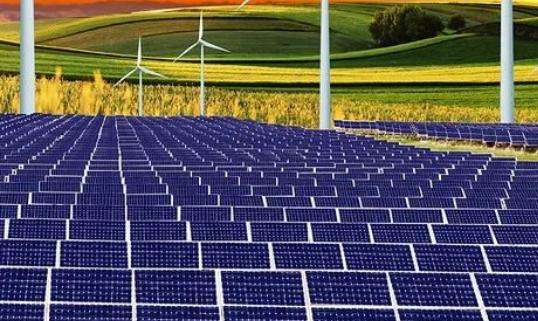So, can hydrogen really be produced from water? What are the ways to produce hydrogen and what is the cost?
It is clear that hydrogen can be produced from water. There are two main ways: electrolysis of water and reaction of active metals with water to replace hydrogen.
Water electrolysis
Direct current passes through an electrolytic tank filled with electrolyte, and the water molecules undergo an electrochemical reaction on the electrodes and decompose into hydrogen and oxygen. Since the ionization degree of pure water is very low and the conductivity is low, electrolysis is difficult or very slow. Therefore, electrolytes such as sulfuric acid, sodium hydroxide and potassium hydroxide are usually added to increase the conductivity of the solution and allow. Water flows easily and quickly electrolyzes into hydrogen et in oxygen. The chemical formula of electrolyzed water is:
At the current technical level, electrolyzing water to produce 1 cubic meter of hydrogen at standard atmospheric pressure requires 5 kWh of electricity at atmospheric pressure standard, the mass of. 1 cubic meter of hydrogen is approximately 0.089286 kilograms, so electrolysis of water to produce 1 kilogram of hydrogen requires approximately 60 kilowatt hours of electricity. If we add the cost of storing hydrogen, the cost of electrolysis of water to produce 1 kilogram of hydrogen is about 50. yuan. For a car using hydrogen fuel cells, each kilogram of hydrogen can provide a range of around 100 kilometers, which is equivalent to consuming 60 kilowatt hours of electricity per 100 kilometers. Compared to the current level of energy consumption of most pure electric vehicles, i.e. 20 kWh per 100 kilometers, we can see that the cocost of producing hydrogen by electrolysis of water is high. It is certainly not possible to use electrolyzed water to produce hydrogen to drive a vehicle. car.
Active metals react with water to displace hydrogen
Metals that are more mobile than hydrogen ions can react with water to displace hydrogen ions in the water to form hydrogen. For example, potassium and sodium, which are very reactive metals, can react quickly with cold water to generate hydrogen. The chemical formula of the reaction is:
According to the chemical formula above, 1 kilogram of. Nanometal can only displace 0.0435 kilograms of hydrogen, while 1 kilogram of sodium metal costs at least tens of yuan. If you want to use sodium metal to produce 1 kg of hydrogen, the cost is at least several hundred yuan, and the cost is even morepupil. Dear. Additionally, sodium is an extremely reactive metal, very dangerous and extremely difficult to preserve. It is therefore impossible to use the reaction of reactive metals and water to produce hydrogen as a routine method and it is generally only used in laboratories.
We can see that the above two methods of producing hydrogen from water are relatively expensive. If hydrogen is produced in this way to drive a car, the gains exceed the losses and there is virtually no prospect of application.
Due to the high demand for industrial hydrogen, hydrocarbon cracking, steam reforming, soda water and other processes are generally used to produce hydrogen. The production cost is relatively lower than the above methods.
Hydrogen fuel cells have the advantages of high energy density, low efficiencyhigh energy conversion efficiency and the absence of polluting emissions. At present, hydrogen fuel cells also provide a path for the development of new energy. by the high cost of hydrogen production and storage, transportation risks are high, and hydrogen fuel cells are still in the research and experimentation stage.
The key is the efficiency of the fuel cell, which is not a fixed value.
HydrogenThe calorific value of gas is 28,667 kcal/kg, or 33 kWh. Based on a hydrogen fuel cell efficiency of 40%, one kilogram of hydrogen can produce 13.3 kWh of electricity.
Please adopt it if you are satisfied.














